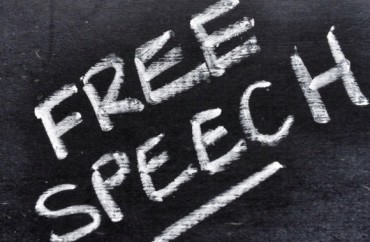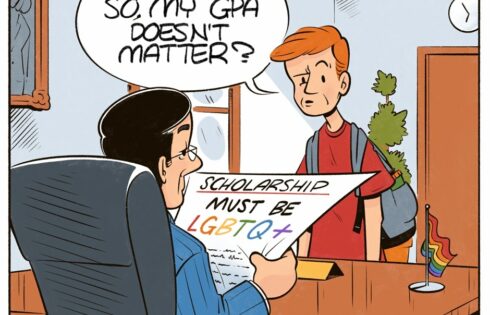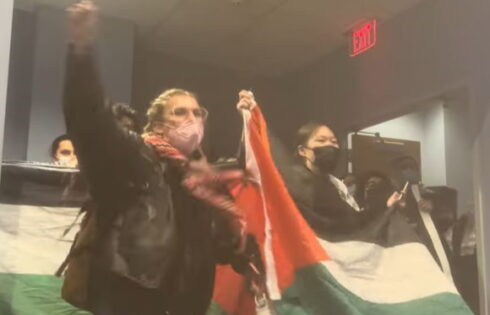
Students believe in censoring ‘hate speech,’ disinviting speakers
Large numbers of college students across the United States have a favorable view of censorship and other forms of opposition to free speech, a new survey reveals.
The survey, commissioned by the Foundation for Individual Rights in Education and conducted by YouGov, shows that college students’ attitudes toward free speech is at times markedly hostile, that students are more likely than not to “self-censor” themselves in classrooms, and that large majorities of students favor the disinvitation of campus speakers depending on the speaker’s ideology.
Some of those numbers increase over time: “Slightly less than half of first-year students (47%),” the researchers write, “and somewhat more than half of fourth-year students (59%) have stopped themselves from expressing an idea or opinion in the classroom.” Among students who self-censored, a full third of them did so “because they thought their peers might consider their words offensive,” while nearly half did so “because they thought another student might judge them.”
Alternately, when students hear “offensive” opinions in class proffered by another student, 35 percent “might [not] try to understand the point of view” of the one who voiced it. Just under half of students surveyed, meanwhile, “might avoid interacting with a peer who makes an offensive statement.”
On the topic of disinviting campus speakers, the numbers are divided sharply by partisan lines. The highest number of self-identified Republicans who would favor a disinvitation of a speaker (around 30 percent, if the speaker were “anti-American”) is significantly less than the highest number of self-identified Democrats who would favor a disinvitation (a little over 50 percent, if the speaker were racist).
There is currently disagreement among students over whether hate speech should be protected and how, if at all, it should be defined. Almost one-half of students (46) recognize that hate speech is protected by the First Amendment, and one-third (31%) of these students think that it shouldn’t be protected. Some American students consider some speech that is not protected by the First Amendment, such as unlawful discrimination and incitement, to be hate speech. Other students consider portions of constitutionally protected speech to be hate speech, while some consider a mix of unprotected and protected expression to be hate speech. Further complicating the debate on hate speech is the opinion held by some students that hate speech is a form of violence.
The topic of hate speech is currently being discussed on college campuses. These discussions may affect students’ attitudes toward hate speech, and it is possible that students feel hate speech is a divisive or emotionally loaded topic. To account for this, when we asked students about their attitudes toward hate speech, we allowed them to report not having an opinion on hate-speech protections. Seventeen percent of students report having no opinion on whether hate speech should be protected.
Just over one-third of students (35%) think hate speech should be protected by the First Amendment to the United States Constitution. Almost one-half of students (48%) think the First Amendment should not protect hate speech. (Citations omitted.)
The survey results reflect an antipathy to free speech borne out by other polls on the matter. A few years ago, a survey by Young America’s Foundation found that a majority of students believe “using offensive words is an ‘act of violence’.” Another recent poll found that over a third of college students believed the First Amendment does not protect hate speech, while a third believe that “the First Amendment is outdated.” And a Pew research poll found that forty percent of Millennials are “OK with limiting speech offensive to minorities.”
The poll used an “online opt-in panel” to collect results, a common methodology in mainstream media surveys. An “online opt-in panel” was recently employed by the Brookings Institution to show that high numbers of college students support using violence to stop controversial speakers. (A columnist in The Guardian called the opt-in panel methodology “junk science,” but The Guardian itself often reports uncritically on opt-in polls.)
Read the entirety of the survey results here.
MORE: Poll: Most Democrats support curtailing free speech
MORE: Poll: Overwhelmingly, Democrats do not approve of the First Amendment on campus
IMAGE: Shutterstock
Like The College Fix on Facebook / Follow us on Twitter




Please join the conversation about our stories on Facebook, Twitter, Instagram, Reddit, MeWe, Rumble, Gab, Minds and Gettr.